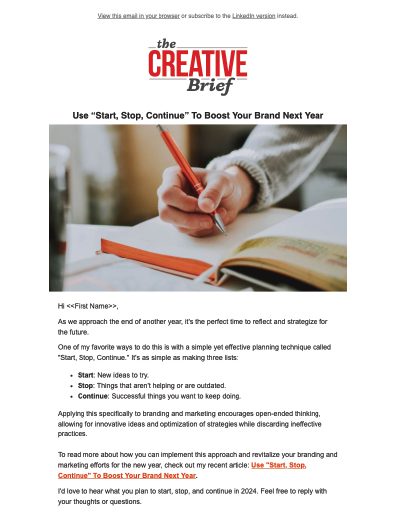It’s Halloween, and we’re reminded of how fear can be a powerful motivator—from spooky decorations to frightening film marathons. Fear can also be a little fun, except in marketing and advertising.
Using fear as a marketing tactic can have unintended consequences that linger long after the holiday is over. While fear may capture attention temporarily, it can erode trust, harm brand reputation, and ultimately undermine the success of small businesses.
Impact on Employee Engagement
When businesses rely on fear in their marketing, it doesn’t just affect customers—it can also create a toxic work environment for employees. Employees who witness fear-based campaigns may feel disillusioned, questioning the integrity of the brand they represent. This dissatisfaction can lead to lower morale and productivity, as workers may feel uncomfortable promoting a message they don’t believe in. A healthy work culture is vital for any small business, and fostering an environment where employees feel valued and respected is crucial.
Influence on Brand Advocacy
Trust is key to building strong customer relationships; fear tactics can quickly undermine that trust. Customers who feel manipulated by scare tactics are less likely to remain loyal or advocate for the brand. Instead of sharing their positive experiences, they may hesitate to recommend the business to friends and family. Building brand advocates is essential for small businesses, as word-of-mouth referrals can significantly drive growth. When brands foster genuine connections without resorting to fear, they create loyal customers who willingly promote their products or services.
Consumer Behavior Shift
Today’s consumers are more informed and discerning than ever before. As they become increasingly aware of marketing tactics, many are shifting away from brands that use fear to grab attention. Recent studies show consumers prefer brands that focus on positive and supportive messaging. They seek transparency and authenticity, wanting to connect with businesses that resonate with their values. Small businesses prioritizing genuine engagement over fear can tap into this behavioral shift and cultivate lasting relationships with their audience.
Market Positioning and Differentiation
Small businesses must differentiate themselves to stand out. Relying on fear tactics can dilute a brand’s unique selling proposition (USP), making it challenging for consumers to see what sets them apart from competitors. Instead of trying to scare customers into making a purchase, businesses should focus on highlighting their strengths and what makes them unique. By fostering a positive brand identity, brands can carve out a distinct position in the minds of consumers.
Social Media Amplification of Fear
Social media can be a double-edged sword for brands. While it offers a platform for reaching a broad audience, it can also amplify the adverse effects of fear-based marketing. When consumers feel manipulated, they are quick to voice their opinions online, leading to rapid negative feedback that can harm a brand’s reputation. A single misstep can spread like wildfire, causing long-lasting damage. Small businesses must be mindful of how their messaging may be perceived and consider the potential fallout from fear tactics.
Long-Term Brand Resilience
Building a resilient brand requires a commitment to positive messaging and customer relationships. Brands that rely on fear may achieve short-term gains but risk damaging their reputation in the long run. Businesses focusing on transparency, empathy, and trust are better equipped to weather market challenges and maintain customer loyalty. By prioritizing emotional connections over fear, small businesses can create a more robust brand that stands the test of time.
Consumer Empowerment and Choice
Modern consumers value empowerment and respect in their purchasing decisions. Fear tactics can come off as manipulative, leading customers to seek brands that honor their autonomy. Small businesses can foster trust and respect by providing clear, honest information and allowing consumers to make informed choices. Empowered customers are more likely to feel satisfied with their purchases and to return for future business.
Adopt Alternative Strategies
There are numerous potential pitfalls of using fear in marketing. While it may grab attention in the short term, the long-lasting effects can damage trust, loyalty, and a brand’s overall reputation. Small businesses should adopt alternative strategies that foster genuine engagement and positive customer relationships. By focusing on trust and empathy, brands can create lasting connections that lead to sustainable growth.




